#ph: david phipps
Photo

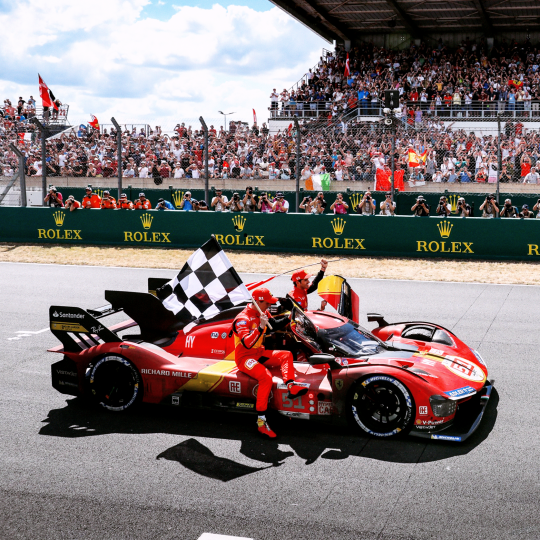
ferrari victory laps in le mans: 1963 // 2023
#wec#wecedit#24h le mans#ferrari#24h le mans 2023#24h le mans 1963#ferrari hypercar#scuderia ferrari#parallels#yeah...#ph#ph: david phipps#*ph#*m#*ferrari#*lmh#save#my eyes are so tired from crying earlier I am going to nap. ciao!#userbarbi#userxoames#userf#dailyf1#(idt we have a dailywec)
494 notes
·
View notes
Photo

Grand Prix du Mexique 1966, Mexico City - G à D : Jochen Rindt, Jackie Stewart, Graham Hill, Lorenzo Bandini, Innes Ireland, Dan Gurney and Jack Brabham. (ph : David Phipps).- source UK Racing History.
#grand prix du mexique#jochen rindt#jackie stewart#graham hill#lorenzo bandini#innes ireland#dan gurney#jack brabham
24 notes
·
View notes
Text
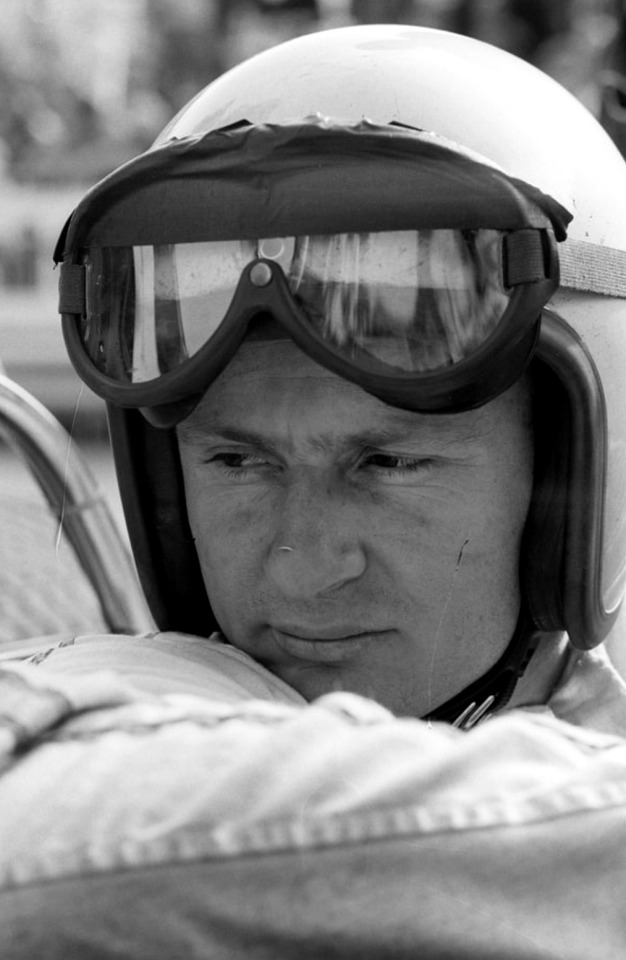
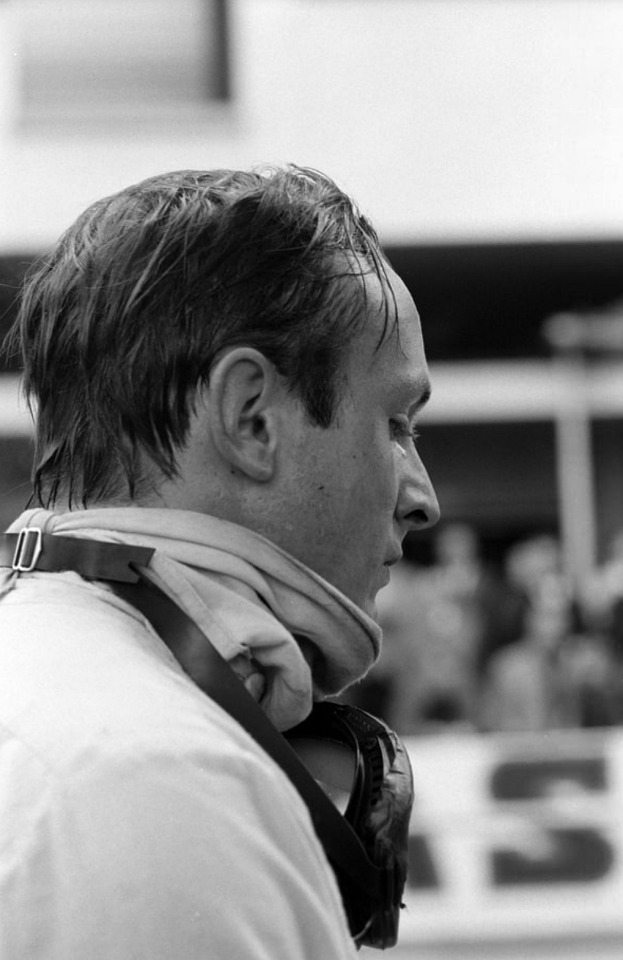
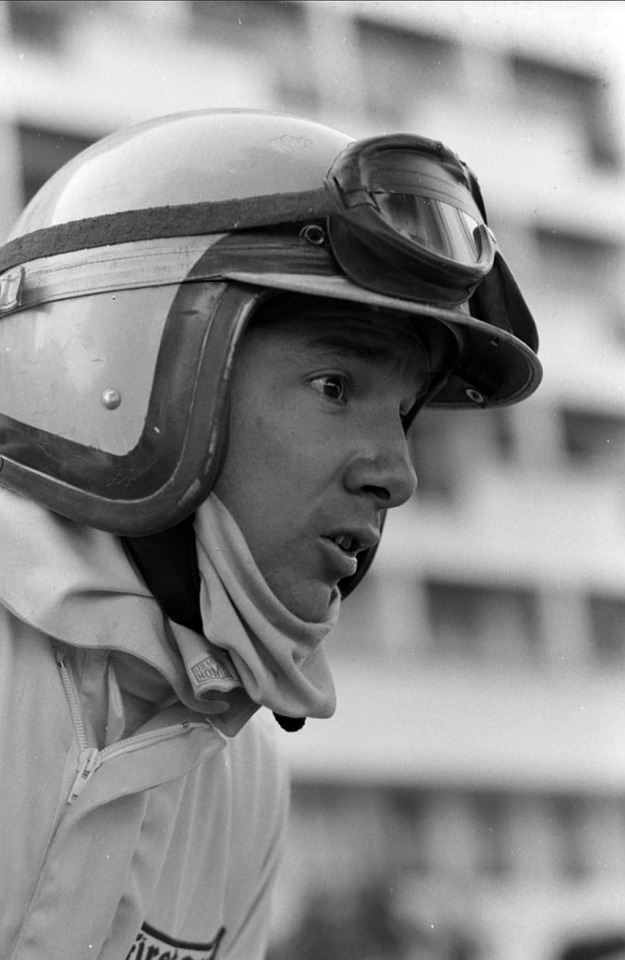
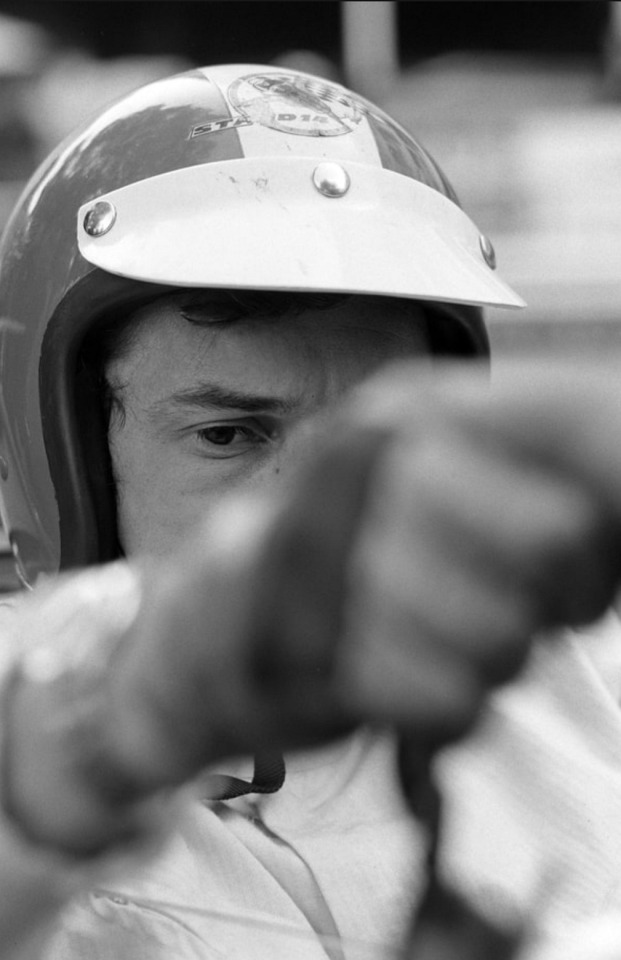
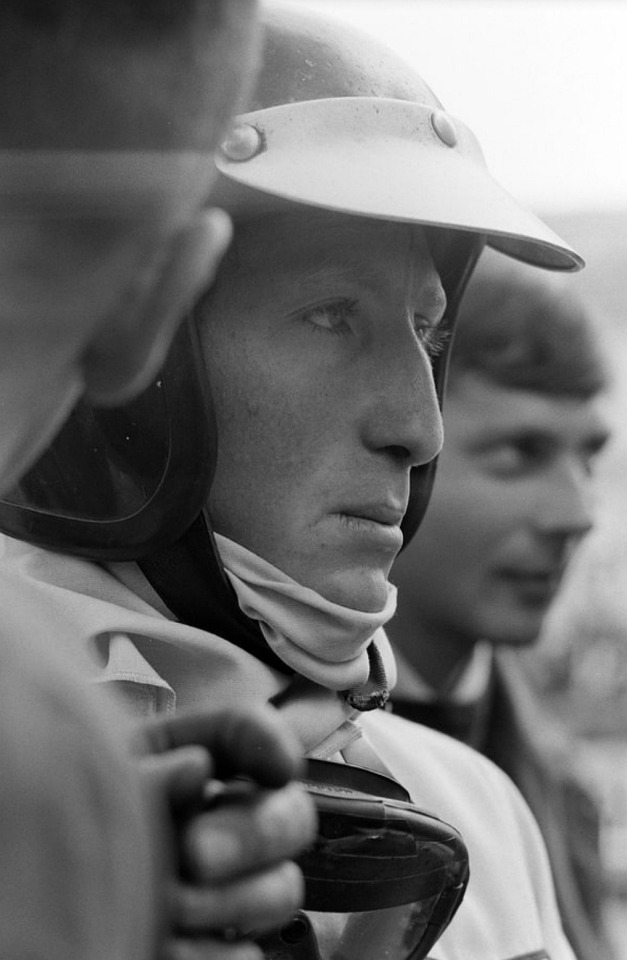

Monaco GP 1967
Bruce McLaren, Chris Amon, Pedro Rodríguez, Jean-Pierre Beltoise, Jochen Rindt & Lorenzo Bandini.
ph. David Phipps
#bruce mclaren#chris amon#pedro rodriguez#jean pierre beltoise#jochen rindt#lorenzo bandini#classic f1#f1#formula 1#retro f1#f1 1960s
14 notes
·
View notes
Text
Bowel Cancer
Intro
Bowel cancer is the development of cancer from the bowel or colon. A cancer is the abnormal growth of cells that have the ability to invade or spread to other parts of the body. Signs and symptoms may include blood in the stool, a change in bowel movements, weight loss, and feeling tired all the time. Most diagnosis are due to old age and lifestyle factors with only a small number of cases due genetic disorders.
Cause
Most cases are caused by no link to genetic risk. Risk factors include older age, being male, high intake of fat, alcohol, red meat, processed meats, obesity, smoking, and a lack of physical exercise.
People with ulcerative colitis and Crohn’s disease are at increased risk the risk increases the longer a person has the disease, and the worse the severity of inflammation.
Genetic syndromes are also associated with higher rates of colorectal cancer such as: hereditary nonpolyposis colorectal cancer (HNPCC or Lynch syndrome), Gardner syndrome and familial adenomatous polyposis (FAP).
Diagnosis
PET, MRI and CT scans are usually used which then it used in partner with the TNM system which produces staging results using T stages:
Or Duke’s stages:
Surgery
If the cancer is found at a very early stage, small and localised it may be removed during a colonoscopy. , with the attempt of achieving a cure. This can either be done by an open laparotomy or sometimes laparoscopically. The colon may then be reconnected or a person may have a colostomy. Sometimes chemotherapy is used before surgery to shrink the cancer before attempting to remove it. The two most common sites of recurrence of colorectal cancer are the liver and lungs.
In both cancer of the colon, chemotherapy may be used in addition to surgery in certain cases. In Stage I colon cancer, no chemotherapy is offered, and surgery is the treatment. In Stage II colon cancer is and is usually not offered. For stage III and Stage IV colon cancer, chemotherapy is an integral part of treatment. If cancer has spread to the lymph nodes or distant organs, which is the case with stage III and stage IV colon cancer respectively, adding chemotherapy agents increases life expectancy. If the lymph nodes do not contain cancer, the benefits of chemotherapy are debatable. If the cancer is widely metastatic or unresectable, treatment is then palliative.
References
Cancer Research UK “http://creativecommons.org/licenses/by-sa/4.0”
“Colon Cancer Treatment (PDQ®)”. NCI. 2014-05-12. Retrieved 29 June 2014.
“Defining Cancer”. National Cancer Institute.
“General Information About Colon Cancer”. NCI. 2014-05-12.
World Cancer Report 2014. World Health Organization. 2014. pp. Chapter 5.5.
“Colorectal Cancer Prevention (PDQ®)”. National Cancer Institute. 2014-02-27.
Bibbins-Domingo, Kirsten; Grossman, David C.; Curry, Susan J.; Davidson, Karina W.; Epling, John W.; García, Francisco A. R.; Gillman, Matthew W.; Harper, Diane M.; Kemper, Alex R.; Krist, Alex H.; Kurth, Ann E.; Landefeld, C. Seth; Mangione, Carol M.; Owens, Douglas K.; Phillips, William R.; Phipps, Maureen G.; Pignone, Michael P.; Siu, Albert L. (21 June 2016). “Screening for Colorectal Cancer”. JAMA. 315 (23): 2564–75.
Thorat, MA; Cuzick, J (Dec 2013). “Role of aspirin in cancer prevention.”. Current Oncology Reports. 15 (6): 533–40.
“Routine aspirin or nonsteroidal anti-inflammatory drugs for the primary prevention of colorectal cancer: recommendation statement.”. American Family Physician. 76 (1): 109–13.
“SEER Stat Fact Sheets: Colon and Rectum Cancer”. NCI.
World Cancer Report 2014. World Health Organization. 2014. pp. Chapter 1.1.
Alpers, David H.; Kalloo, Anthony N.; Kaplowitz, Neil; Owyang, Chung; Powell, Don W. (2008). Yamada, Tadataka, ed. Principles of clinical gastroenterology. Chichester, West Sussex: Wiley-Blackwell. p. 381.
Astin M, Griffin, T, Neal, RD, Rose, P, Hamilton, W (May 2011). “The diagnostic value of symptoms for colorectal cancer in primary care: a systematic review”. The British Journal of General Practice. 61 (586): 231–43.
Adelstein BA, Macaskill, P, Chan, SF, Katelaris, PH, Irwig, L (2011). “Most bowel cancer symptoms do not indicate colorectal cancer and polyps: a systematic review”. BMC Gastroenterology. 11: 65.
Watson AJ, Collins, PD (2011). “Colon cancer: a civilization disorder”. Digestive Diseases. 29 (2): 222–8.
Cunningham D, Atkin W, Lenz HJ, Lynch HT, Minsky B, Nordlinger B, Starling N (2010). “Colorectal cancer”. Lancet. 375 (9719): 1030–47.
“Colorectal Cancer 2011 Report: Food, Nutrition, Physical Activity, and the Prevention of Colorectal Cancer” (PDF). World Cancer Research Fund & American Institute for Cancer Research. 2011.
Lee, I-Min; Shiroma, Eric J; Lobelo, Felipe; Puska, Pekka; Blair, Steven N; Katzmarzyk, Peter T (1 July 2012). “Effect of physical inactivity on major non-communicable diseases worldwide: an analysis of burden of disease and life expectancy”. The Lancet. 380 (9838): 219–29.
Fedirko V, Tramacere, I, Bagnardi, V, Rota, M, Scotti, L, Islami, F, Negri, E, Straif, K, Romieu, I, La Vecchia, C, Boffetta, P, Jenab, M (Sep 2011). “Alcohol drinking and colorectal cancer risk: an overall and dose-response meta-analysis of published studies”. Annals of Oncology. 22 (9): 1958–72.
Valtin, H (November 2002). “"Drink at least eight glasses of water a day.” Really? Is there scientific evidence for “8 x 8”?“. American Journal of Physiology. Regulatory, Integrative and Comparative Physiology. 283 (5): R993–1004
Jawad N, Direkze, N, Leedham, SJ (2011). "Inflammatory bowel disease and colon cancer”. Recent Results in Cancer Research. Recent Results in Cancer Research. 185: 99–115.
Xie J, Itzkowitz, SH (2008). “Cancer in inflammatory bowel disease”. World Journal of Gastroenterology. 14 (3): 378–89.
Triantafillidis JK, Nasioulas, G, Kosmidis, PA (Jul 2009). “Colorectal cancer and inflammatory bowel disease: epidemiology, risk factors, mechanisms of carcinogenesis and prevention strategies”. Anticancer Research. 29 (7): 2727–37.
Juhn E, Khachemoune, A (2010). “Gardner syndrome: skin manifestations, differential diagnosis and management”. American Journal of Clinical Dermatology. 11 (2): 117–22.
Half E, Bercovich, D, Rozen, P (2009). “Familial adenomatous polyposis”. Orphanet Journal of Rare Diseases. 4: 22.
Möslein G, Pistorius S, Saeger H, Schackert HK (February 2003). “Preventive surgery for colon cancer in familial adenomatous polyposis and hereditary nonpolyposis colorectal cancer syndrome”. Langenbecks Arch. Surg. 388 (1): 9–16.
Stein, Ulrike; Walther, Wolfgang; Arlt, Franziska; Schwabe, Holger; Smith, Janice; Fichtner, Iduna; Birchmeier, Walter; Schlag, Peter M (2008). “MACC1, a newly identified key regulator of HGF-MET signaling, predicts colon cancer metastasis”. Nature Medicine. 15 (1): 59–67.
Stein A, Atanackovic, D, Bokemeyer, C (Sep 2011). “Current standards and new trends in the primary treatment of colorectal cancer”. European Journal of Cancer. 47 (Suppl 3): S312–4. .
“Chemotherapy of metastatic colorectal cancer”. Prescrire International. 19 (109): 219–24. October 2010.
Akhtar R, Chandel S, Sarotra P, Medhi B (2014). “Current status of pharmacological treatment of colorectal cancer”. World J Gastrointest Oncol. 6 (6): 177–83.
Shaib, W; Mahajan, R; El-Rayes, B (2013). “Markers of resistance to anti-EGFR therapy in colorectal cancer”. Journal of Gastrointestinal Oncology. 4 (3): 308–18.
0 notes
Photo

WATKINS GLEN, 1976 — Front suspension detail of Niki Lauda’s Ferrari 312T2. (Photo by David Phipps)
#f1#niki lauda#scuderia ferrari#ferrari 312t2#1976#us gp east 1976#1970s#ph#ph: david phipps#*ph#*m#*ferrari#scrapbooking
113 notes
·
View notes
Photo
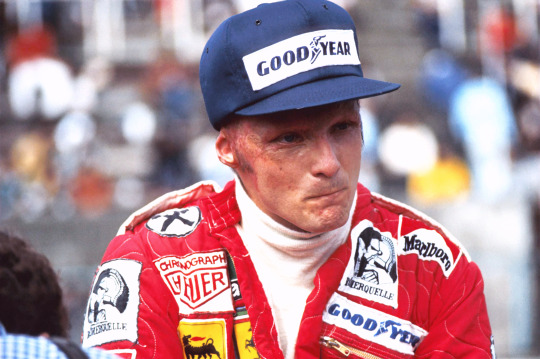
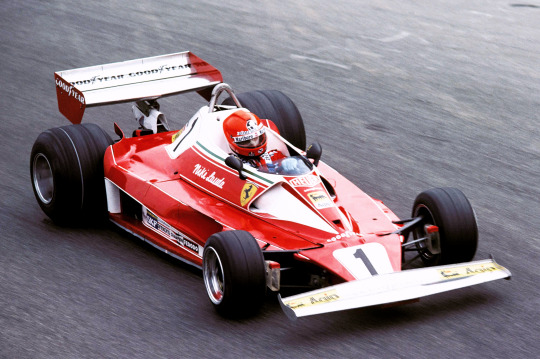

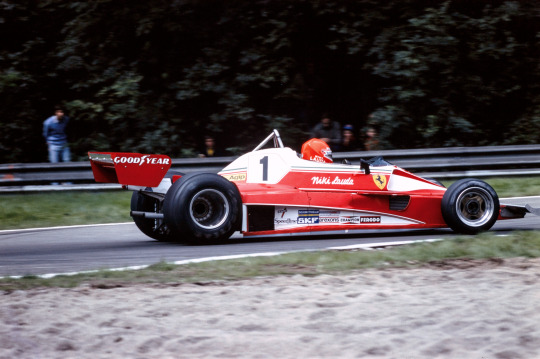
MONZA, 1976 — Niki Lauda makes a heroic return to Formula 1 following a fiery near-fatal accident at the Nurburgring six weeks earlier. (Photo by David Phipps)
#f1#italian gp 1976#niki lauda#scuderia ferrari#ph#ph: david phipps#*ph#*m#*ferrari#forza niki#❤#1976#1970s#one of the most legendary monza ever
122 notes
·
View notes